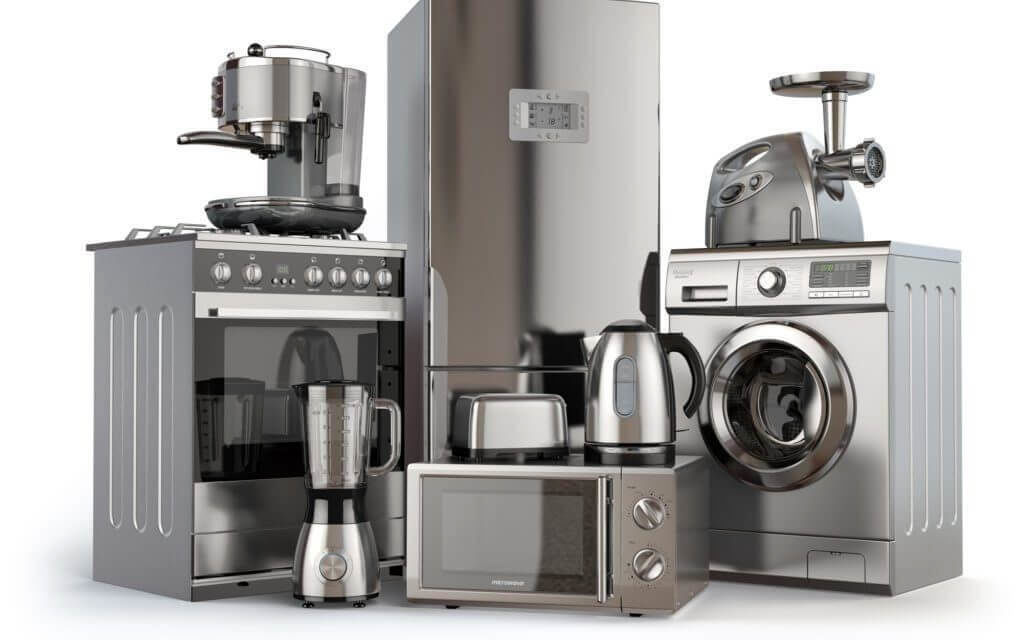Certification of household appliances
NEED HELP WITH CERTIFICATION?
Certification of household appliances

Appliances intended for daily use in everyday life are represented by an extensive range of products – electrical and mechanical appliances, most of which belong to the category of low-voltage equipment. The free entry of goods to the market of the Russian Federation and the EAEU countries is preceded by a mandatory certification procedure – an assessment of the compliance of household appliances with the provisions of the current technical regulations.
Regulatory framework.
Household appliances, regardless of size and purpose, are subject to mandatory conformity assessment in the form of certification and are subject to two CU TRs.
The regulation 004/2011 provides for inspection of the safety of household appliances – from lamps, headphones to computers and power supplies.
Requirements of TR 020/2011 relate to the inadmissibility of electromagnetic interference and compatibility of technical equipment during operation.
Based on the results of tests, the manufacturer, supplier or seller receives a certificate for household appliances confirming that the products comply with all mandatory requirements of regulatory documents.
Additionally, electrical products can be tested for the content of hazardous substances according to the technical regulation TR EAСU 037/2016. The regulatory document provides for declaration of products which can be replaced by certification, at the applicant’s request.
Household appliances subject to certification.
Certain categories of electrical appliances are subject to quality control on a mandatory basis:
- for cooking, food storage, automation of work in kitchen: refrigerators, freezers, stoves, hobs, ovens, dishwashers, steamers, microwave ovens, electric grills, bread makers, food processors, electric meat grinders, coffee machines, electric kettles;
- for handling clothes and shoes: washing machines, dryers, irons, steam generators;
- for cleaning premises: vacuum cleaners, polishers;
- for controlling and maintaining microclimate in premises: fans, air conditioners, humidifiers, air cleaners, electric fireplaces.
The full list of devices subject to verification as part of certification of household appliances can be found in the text of relevant decisions of the Board of the Eurasian Economic Commission. If there is no position in the list, a quality certificate is sufficient.
The procedure and deadlines for processing documents.
Product quality control can be carried out according to one of the approved schemes. The timing of obtaining permits directly depends on characteristics of the workflow organization.
The choice of scheme is influenced by several factors:
- who initiates the procedure – the manufacturer or the seller;
- what is to be evaluated – mass production or a single batch of products.
On average, issue of permits after providing samples takes 2-3 weeks.
Certification of household appliances can be run under one of three possible schemes – 1s, 3s or 4s, each of which has peculiarities.
Scheme 1c, when evaluating a series of products, provides for mandatory production control, analysis of the production process, and after receiving conclusions – periodic inspection during the entire period covered by issued document valid for maximum 5 years.
A certificate for household appliances from a single batch (3c) is issued without reference to manufacturing conditions – it is sufficient to test end products in a laboratory accredited by the state. The maximum period of validity of issued permits under schemes 3c and 4c is not determined, but their effect applies exclusively to a single consignment of goods that can be identified.
List of documents for certification of household appliances.
The submission of an application for a certificate is preceded by the stage of collecting and preparing a complete set of mandatory documents, which includes all technical documentation.
List of documents required for certification of household equipment consists of the following:
- technical analysis of the product (if such description is mandatory at production stage);
- a package of operational documentation (data sheets, instructions for assembly, installation, operation);
- codes of foreign economic activity for each declared position;
- certificate of registration of the applicant (OGRN);
- supply contract, specification, invoice (if pertains to imported consignment of goods);
- standard application for verification
By clicking Submit, you agree to Fresh Consulting’s Privacy Policy.
COMPANIES WHICH TRUST MASTCERT
